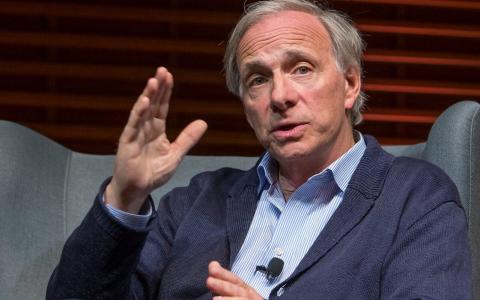
Ray Dalio, the influential founder of Bridgewater Associates, the world's largest hedge fund, expresses concerns that investors may be too optimistic, failing to adequately account for global threats in their market outlook.
In a detailed LinkedIn post, Dalio, who oversees approximately $100 billion in assets and serves as a mentor to co-chief investors at Bridgewater, highlights the potential risks that could destabilize markets and economies in 2024, including internal and external conflicts, as well as the impacts of climate change.
Despite current asset valuations being somewhat aligned with fundamentals, with U.S. stocks and bonds appearing slightly overpriced, Dalio sees no imminent signs of a crisis akin to 2008. However, he cautions that the markets might be too complacent, expecting a 'Goldilocks economy' with moderate growth, subsiding inflation, and declining interest rates.
Contrary to market expectations, Dalio anticipates that growth may fall short as pandemic-related savings diminish and debt costs increase. He also foresees inflation remaining approximately 1 percentage point above central bank targets, with interest rates declining more slowly than anticipated. Nevertheless, he acknowledges the high degree of uncertainty in these predictions and has refrained from making substantial bets based on them.
Adding to these economic concerns, Dalio warns of the potential market repercussions of the upcoming U.S. presidential election, irrespective of whether Joe Biden or Donald Trump emerges victorious. Speaking at the World Economic Forum in Davos, he emphasized that a win by either candidate could exacerbate political tensions in the U.S., further polarizing the nation on key issues such as taxation, trade, foreign policy, and social values.
Dalio also notes the absence of geopolitical risks in current market pricing, pointing specifically to the ongoing US-China power struggle, as well as the conflicts in Ukraine-Russia and Israel-Gaza. He suggests that these elements of uncertainty have not been fully accounted for by investors.
In his closing remarks, Dalio advises against the strategy of liquidating assets and accumulating cash as a safe haven. He argues that over an extended period, holding cash is not a prudent investment strategy, referring to it as a 'trashy' choice due to its inability to keep pace with inflation or provide substantial returns.
This advice is particularly pertinent for wealth advisors and RIAs, who must navigate these complex and uncertain economic waters on behalf of their clients.



